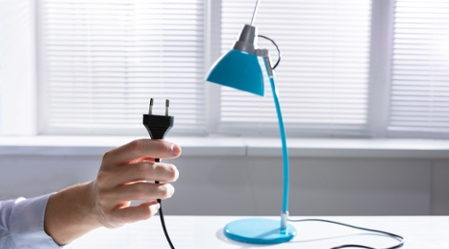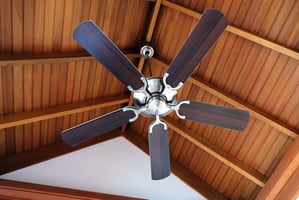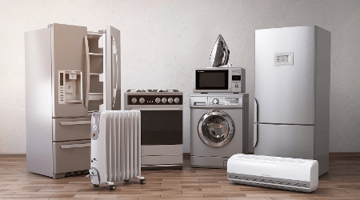While Earth Day is in the rearview mirror for the year, the annual celebration on April 22nd...
Reducing Energy Usage is the Smart Way to Lower Electric Bills
 Electricity bills are continually fluctuating, whether due to the season, weather patterns, or current rates in your local area. The size of your home, your usage patterns, and the types of electronics and appliances you have are factors as well. Most people are looking to find ways to save money in today’s world—and that includes on their energy bills.
Electricity bills are continually fluctuating, whether due to the season, weather patterns, or current rates in your local area. The size of your home, your usage patterns, and the types of electronics and appliances you have are factors as well. Most people are looking to find ways to save money in today’s world—and that includes on their energy bills.
What uses the most energy in your home and drives up your energy bill?
The answer to what uses the most energy in your home is both simple and complex. The short answer is your heating and cooling system, but a lot also depends on the efficiency of your system and how it works in tandem with your home. Both can drive bills even higher if they aren't functioning optimally.
Consider this scenario where optimal efficiency is compromised: You have a top-of-the-line Energy Star rated HVAC system. However, you live in a place with extreme weather—summers are hot, and winters are freezing. Your super-efficient system works harder and more frequently due to the missing flashing on your doors, uninsulated recessed lighting, and the biggest offender, an uninsulated attic. Basically, your house’s inefficiency is making your HVAC work overtime, thus driving your bills higher.
The truth is, it’s always a combination of things that lead to higher energy bills, which is why it’s helpful to attack inefficiency from all angles.
What are some ways to reduce your energy usage?
There are many strategies for making your home more energy efficient. Some require significant investments; others are simple changes in your lifestyle. The goal is to reduce your energy usage and save on your summertime energy costs.
- Invest in a Smart thermostat like Nest or Ecobee. You’ll have a lot more control over your heating and cooling system, and will even be able to operate it when you’re not home.
- Check the air filter on your air conditioner – a clean filter improves the system’s efficiency.
- Fix your home’s insulation. Assess your home and where it lacks good insulation. Attics, crawl spaces, basements, and walls are all potential problem spots. Work with a contractor to upgrade.
- Use window coverings to keep warmth in or out. Energy.gov has a guide to using energy efficient window attachments.
- Update your appliances and electronics. Look for the Energy Star label or a sticker that tells you how much a TV/washer/dryer/refrigerator costs to run per year. Look for products that have excellent efficiency and low annual energy costs.
- Appliances can increase the heat in your space, so in the summer, use them at night. You can even bypass the dryer altogether by air drying your clothes. Another way to save energy in the laundry room is to put a dry towel in the dryer with each load of wet clothes. The towel will absorb dampness and reduce drying time.
- Small home appliances (blender, toaster oven) and electronic (computer, TV, phone charger cords) can be energy vampires. It’s best to unplug them when you’re not using them. For convenience use a power switch that allows you to turn off groups at a time.
- Replace incandescent light bulbs with more efficient LED bulbs.
Change your habits – it’s free
One other thing you can do is change simple daily habits like washing small loads of dishes by hand, or turning off lights in rooms you’re not in. Wash clothes in cold water, and turn down your water heater. Use your microwave for cooking meals for about half the energy of a conventional oven. Make sure your windows are shut, and outside doors are closed when the air conditioning is on.
Every small change you make helps reduce your energy bill.



